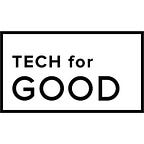Meet the Rethink Supply Chains Challenge finalists | Sustainability Incubator
(2016)
By: Cat Cochrane
In the past three years, Partnership for Freedom has collaborated on two innovation challenges to inspire, reward, pilot and potentially scale constructive solutions to end labour trafficking and support survivors.
In 2015, PFF called upon developers, designers, advocates, and innovators to submit concepts for technological solutions that identify and address labor trafficking in global supply chains for goods and services for the Rethink Supply Chains Challenge.
In the third of our challenge finalists series, we chat to Sustainability Incubator, designers of traceability software that enables seafood suppliers to voluntarily report on the origins of their catches and vessel working conditions.
SUSTAINABILITY INCUBATOR
// Can you share with us the solutions Sustainability Incubator has in identifying and addressing labor trafficking in global fishing supply chains?
The Sustainability Incubator develops solutions for seafood businesses to show due diligence against trafficking — but making progress is complicated by unknowns. What works, and what’s uncomfortable is the only solution that is effective to identify in the supply chain, behind the products of concern, where the risks are. We look at the whole chain.
Trace Registers enhanced Traceability Solution carries the supply chain information and provides the technology that allows experts to develop rulesets to intelligently query the supply chain to determine various business risks including that of labor trafficking.
// And how do the solutions address workers’ voices, recruitment and traceability in the fishing industry?
The Sustainability Incubator reaches out and includes human rights and anti-trafficking organizations in research, design, implementation and follow up — all the way through the service cycle. We do joint research to understand where human beings come in and out of seafood supply chains to work and we follow the flow of fish from the sea through landing, processing and export all the way to the dinner table.
We are looking for loopholes in oversight, evidence of slavery, and everyday business practices that confound transparency for the next buyer in the chain — such as sub-contracting work out through a labor chief. The idea is to set up a bridge for solving the problem from both ends by engaging the people needing change most.
Retailers and importers face legal and reputation risks to business and have some leverage from the top down. But workers’ rights organizations servicing migrant crews already know this problem, where to look, and where to prioritize. We set up a system to reach up and down the chain to spot risks and to gain agreement to fix them.
Trace Register’s enhanced traceability solution allows companies small and large to enter traceability data and so helps capture data from the head of the supply chain closest to where fish were caught through to retailers and consumers.
// Can you tell us about your concept Building Trust in Fishing at Sea? What are the challenges in connection to this part of your work?
The Sustainability Incubator and Trace Registers concept takes advantage of a unique alignment that is now seen between the imperative to stop trafficking in seafood supply chains, and increasing business and legislative requirements for digital traceability data back to the source of the fish. In developing our technology we recognized the need to digitally prove that product data meets a set of requirements, whilst maintaining confidential business information, called digital certificates.
This is a powerful tool that is adaptable and includes algorithms that can help pinpoint supply chain issues, including slavery. Although it is challenging to build these kinds of questions into rule sets, we have been able to plug Labor Safe Screen’s powerful algorithm for identifying slavery and illegal fishing in seafood production into our enhanced traceability system. Working together with Sustainability Incubator we are showing its possible to combine evidence-based research with real world practices and supply chain data to identify human rights conditions in the seafood industry.
// Where do the challenges lie in regard to curating subscribers post-development of the Labor-Safe Screen plug-in?
Key challenges to obtain subscribers for the Labor-Safe Screen plug may be due to products that claim to reduce trafficking risk, without providing the digital traceability platform and expert-based rulesets to query the data and so make realistic determination of risk. However, increasing business pressure to use digital traceability to solve existing business problems as well as trafficking and IUU issues, and the efficiency of expert solutions such as the Labor-Safe Screen plug-in will we believe be the way to attract and keep subscribers.
// What projected impact will your solutions have regarding forced labor issues in five years time should Sustainability Incubator be the Rethink Supply Chains winner?
We believe that in five years, US seafood will be imported by more robust supply chains and produced by trusted actors and using enhanced digital traceability systems that automatically confirm that products are not contaminated with human trafficking or IUU risk. We also believe that by then grocery retailers will have invested in proven improvements to reduce the risk of trafficking and as part of that will have fully embraced digital traceability due to the significant business efficiencies that enhanced digital traceability brings.
